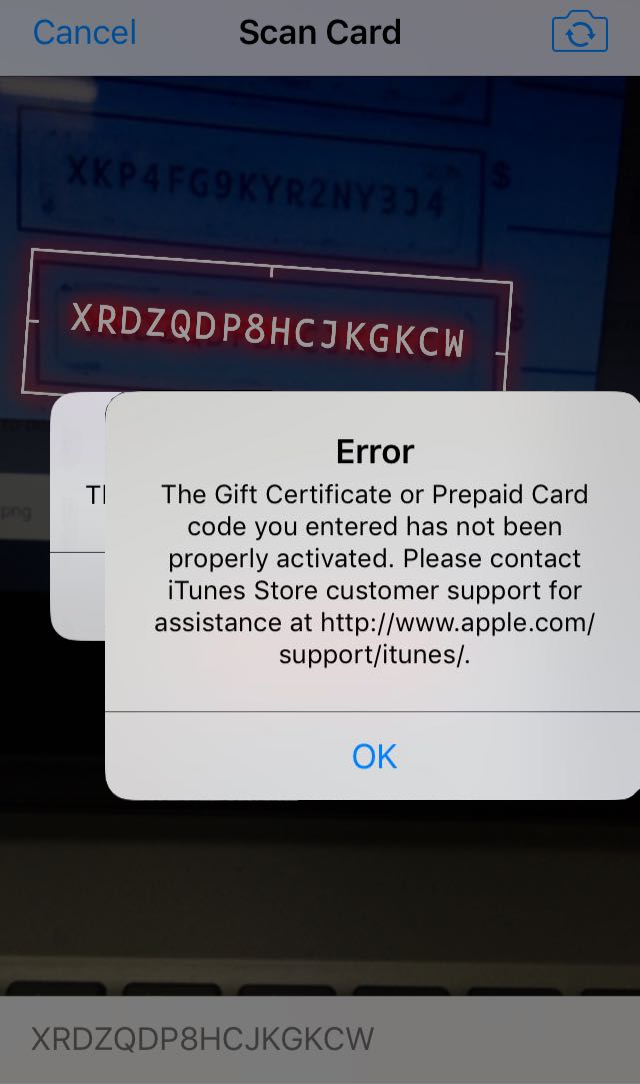
Paxful is a safe place to get crypto quickly without hassle.
Paxful does over 20,000 trades a day, more than any other P2P crypto platform. On Paxful the buyer of bitcoin is always safe and protected from scammers because of the escrow feature. This just means the seller of the bitcoin MUST actually have the bitcoin and that it will be held safely in Paxful escrow so the buyer is always safe.
Paxful also hosts the 4th busiest bitcoin wallet, by sheer number of transactions. Our volume of bitcoin sent and traded is not as high as other platforms because Paxful leads in helping the unbanked in emerging markets of the world. This means much much more work for us and support and less escrow fee revenue because these folks transact in smaller amounts than people in western nations. We?re cool with that because our mission is to bring financial freedom to those who need it most, that is what bitcoin is all about. No one ever said saving the world would be easy.
Besides the immense support required to help brand new non technical users from emerging markets get into crypto there are other challenges far greater.
Scammers, scams and why Fiat sucks!
Imagine giving everyone in the world a global bank account that allows them to convert any form of money into any other form of money. Super cool right! There is just one problem.. Bitcoin is ?irreversible? which means once you send it you cannot take it back, just like digital cash. This is a strength of bitcoin that we all appreciate however it is a nightmare for newbies who make ?mistakes with wallet addresses? and literally ?heaven? for scammers. This is because ANY form of fiat with enough ?political will? or enough effort and time by the scammer is reversible. Yeah, fiat does suck, ask any PayPal merchant who has gotten his account limited because a buyer screamed fraud and charged them back.
Believe us scammers have immense time to spend trying to scam what would be puny amounts for us. A scammer may spend an intense week of research, manual hack and scam attempts totaling over 100 hours of work just to scam $50 of bitcoin. It makes perfect sense considering their local economy and the global potential to trick newbie vendors. This is a big point to remember. It is the person SELLING the bitcoin that is at risk. The scammer is nearly always the buyer of bitcoin. Buying bitcoin is safe on Paxful but selling it as a vendor can be quite risky. This is why for some especially risky payment methods like PayPal, there are fees of up to 30% or more. The vendors need to cover themselves for scammer losses. The better the vendors get at scam detection the more profit they keep. Experienced vendors keep nearly 100% of their profit as they build a kind of sixth sense and always have a set of scripts to go by.
Our support team is awesome!
They work night and day literally and are super well trained and equipped. They love working at Paxful because we really take care of them and that is because we want them to take care of you the customer. Here is a short guide on what they have learned.
Scammer #1 ? The Chargeback Squid
For example a vendor on Paxful selling bitcoin for PayPal an charging 30% as a fee must first make certain that the person they are dealing with actually owns the PayPal account and is not a hacker so they ask them to upload ID. Problem is that hackers often also steal ID?s from people when they hack their email and PayPal accounts so they Paxful vendor asks for a selfie + ID and even a timestamp to prove they own the PayPal account. Then the buyer of the bitcoin can STILL chargeback anytime as PayPal ALWAYS sides with the buyer. Experienced Paxful vendors know to ask for their social media accounts and usually ask questions to figure out their motivation, such as are they a gambler, BackPager or investor. If they smell something off they tell them to go elsewhere.
The chargeback Squid can operate on any payment method which can be charged back, which is nearly all of them. Chargeback Squids have been known to reverse six figure money wires and their dedication is legendary. One chargeback squid spent over three hours on the phone with bank officials to reverse a $500 money transfer.
Scammer #2 ? The Smooth Scammer
Some scammers have their part down so well they can simply talk vendors into giving them their bitcoin without first getting paid. One particularly bad case, a heroin addict from Romania has been plaguing vendors for months and because he continually finds new identities and uses VPN?s and different devices he has evaded capture. He convinces vendors to ?release bitcoins? from escrow even though we warn vendors about this several times. He uses various psychological tactics including pity pleas and shaming but it is mostly persistence.
Scammer #3 ? The ?Cool Story Bro?
The stories range from mothers in the Intensive Care Unit of local facilities to them being electrocuted by 10,000 volts and forgetting everything except their bitcoin wallet balance. They will mix outrageous tales with pity pleas, sympathy ploys and the best ones will throw in some actual facts and perhaps local news to make their case more believable. If all fails they will resort to slander and extortion.
Scammer #4 ? The Sloppy Scammer
These are lazy clowns that have downloaded a pirated version of photoshop and one youtube tutorial into it they are already editing images of gift cards in the sad hope of scamming a newbie vendor and winning a dispute.

Scammer #5 ? The Identity Scammer
There was a scammer that ran amok causing much pain and grief on Paxful. His or her username was ?requisite? and they basically went around using a well altered ID card to pass the manual ID verification used by most vendors. The photoshop work was excellent and once ?cleared? they would unload various stolen credit cards in exchange for bitcoin. The amounts were small around $25-$50 but this scammer was persistent hitting nearly every single vendor on Paxful. The senior vendors felt something was off and once they alerted us and that first chargeback came through requisite was quickly banned but would return time and time again using a vpn and new accounts. Requisite was finally defeated by a combination of text pattern detection ?They would always say the same things in trades? and device finger printing. Requisite taught us alot and lead us down the road of building our fraud detection AI Charlene, named after one of the people whose ID they would use.
Scammer #6 ? The Social Media Scammer
One scammer told us that their wallet was robbed even thought they had 2FA on. Naturally we didn?t believe that someone got past Google Authentication 2FA ( hackers can get around mobile phone 2fa via text message however ) However, we investigate every case and in going through his account we saw that the IP address of the ?hacker? had logged in before and shared a device ID with his account. He was trying to play off on a combination of guilt, a technical bug which did not exist, and when exposed he threatened to ?Wage social media war against Paxful?. We never heard from him again.
Scammer #7 ? The Brute Scammer
Lets keep in mind that $100 USD can be a fortune to some people. What may be an acceptable loss for us can literally feed an entire family for a month in some areas of the world. That kind of poverty combined with internet access and an open platform makes for an immense challenge. Peer to peer finance is financial inclusion, these folks are the ones we want to help most, yet when a bad apple appears among them they are extremely difficult to stop. They can and will spend countless hours learning the system, even using it legitimately until they find a weakness and exploit it. One scammer made a profile with literally 1000+ trades all faked from various partners all so they could pull a $100 exist scam. We redid our feedback system to prevent this and started studying their methods more carefully. A shadow ban feature was introduced to keep them from simply reregistering and starting again.
Scammer #8 ? The Return of the? Scammer
Some scammers will take a vacation for a few months once they feel ?the heat has died down? and return again to scam some more. They usually discover that their old tricks have been patched up and many times they will simply return to beg for their funds back. By then investigations are complete and all their victims have been restored via any funds seized from the scammer. This is when they spend hours wasting supports time, thankfully we keep detailed histories of all moderator interactions and notes, so that now we simply block these scammers so we can help real people. When scammers are caught they will often apologize and claim they will never do it again among other often dramatic promises to turn a new leaf. We were pretty chill with this in the beginning and in 100% of all cases they simply made new user accounts and scammed with those. We quickly learned that you never left a scammer off the hook. They simply do not stop once they get a taste of ?blood? aka scammed funds.
Scammer #9 ? The CoinLocker
Coinlocking is huge problem in p2p finance and it happens often, usually because of newbie users that simply don?t know what to do next but there are those who Lock a vendors bitcoins in escrow intentionally. This locks up their funds from doing other trades. The Coinlocker can be a competitor looking to ?tie up? the vendor or it can be a beggar or extortionist demanding he get $20 of btc to cancel the trade and let his coins go back into play again. There is no simple solution for coinlocking but we are taking measure to make our mods even more reactive to it. All vendors can usually do is to dispute and at that point it goes into the queque and can take hours if not days at busy times as we have over 1000 disputes open at all times. We are taking measures to give our high volume Vendors white-glove service and allow them to boot Coinlockers themselves. Strict KYC and a security deposit will be required for vendors as well as a clean record. We hope this will end 95% of all Coinlocking.
Scammer #10 ? The Vault Scammer
As more Chinese vendors come on board we have noticed syndicates forming that all work with each other, often they are funded by a central vault account which only does internal transfers to them. 99.9% of the time these syndicates are legitimate and do good business. These syndicates form because Paxful does not have a ?sub account? feature that would allow many people to work as vendors underneath one account. Naturally we understand this but what happens when one of those ?Workers? starts scamming on and off?. then what happens when all of the ?Workers? in a syndicate start to scam on and off ? This is what we noticed with a Chinese group dealing mostly with iTunes Gift cards from Nigerians. Could the Chinese be serially ripping the Nigerians.. ohh poetic justice at it?s best but a crime is a crime and most Nigerians, like all other people are honest. When we confirmed this we banned over 30 accounts and suspended the vault account which has 100 BTC!!! Turns out it belonged to a well to do Professor from Oxford? Whoa. I personally looked into every single case and calculated how much his ?workers? may have ripped. I made a spreadsheet worthy of Scotland Yard but at the end of the day it was not proof enough so I released his funds and apologized. Had we been able to prove that it was a concentrated effort with those he was funding we would have seized the funds and restores their victims but without hard proof we take no action.
Peer to Peer Finance, Humanities Greatest Blessing
And a major pain in the ass. As far as challenges go this is by far the biggest I have ever encountered in eighteen years in the startup game. There is a reason why banks exist, and controlling the ledger is just one of their services. Vetting their ?members? and holding them accountable for fraud is another massive value they add. When borders disappear thanks to the internet and identities are guised by anonymous addresses on a blockchain then things get difficult. How would a ?global bank? deal with this? If it was just crypto currency, which cannot be ?charged back? then it would be easy but when you bring in the entire world of fiat money.. you get a war in the wild west, which is what p2p finance is in now but we are winning the fight because we MUST.
The good news is that for the bitcoin buyer, you are very safe at Paxful as the bitcoin escrow protects you. The vendor selling you the bitcoins does not know if you are a legit buyer or a potential scammer however, so they many ask for ID or other proof. This is the only draw back to the buyer.
For more and more people all over the world peer to peer finance is their only hope for financial inclusion and empowerment. Our mission has always been to make a real positive difference in the day to day lives of those people. We will continue to move forward every single day and take as many as we can with us.


